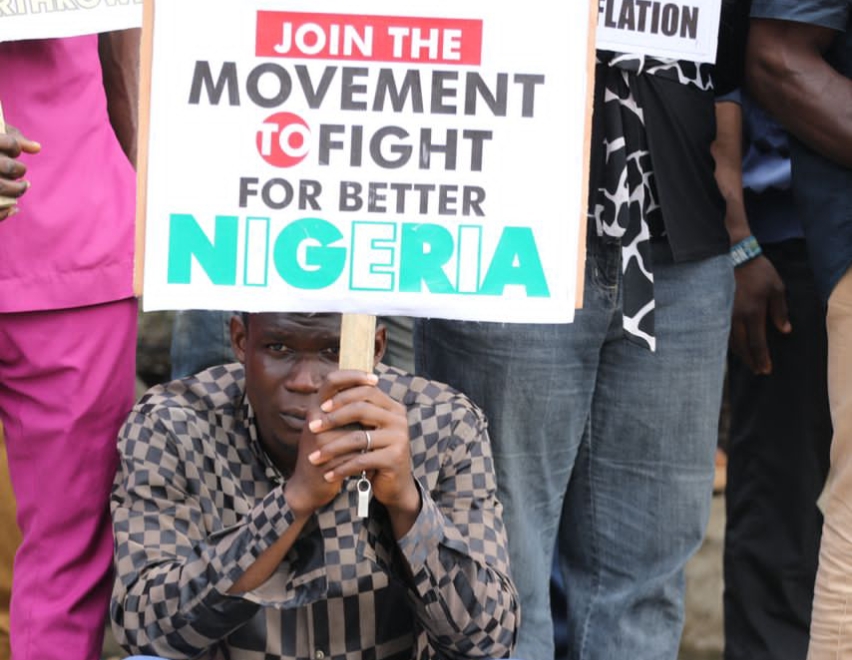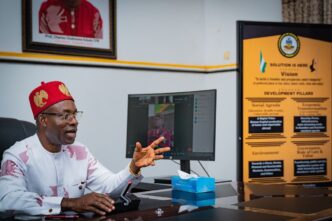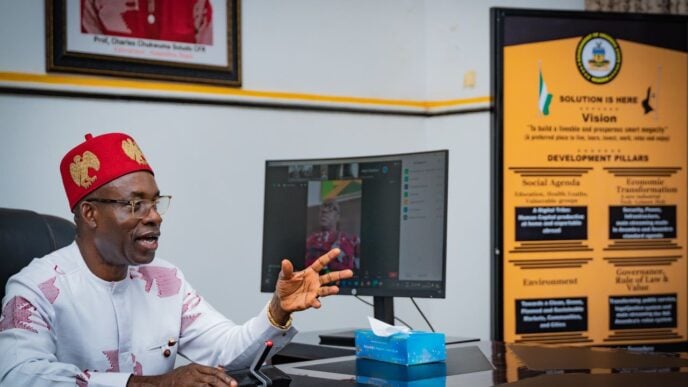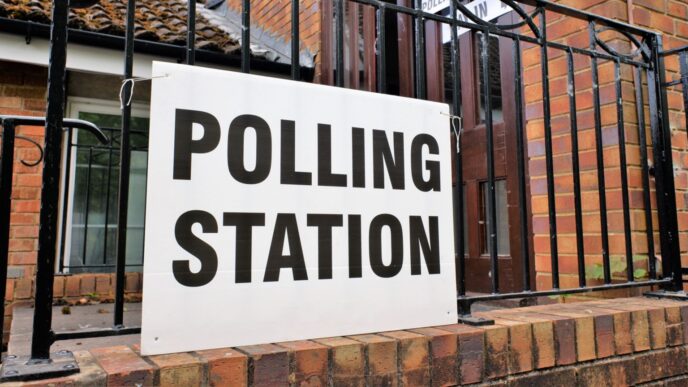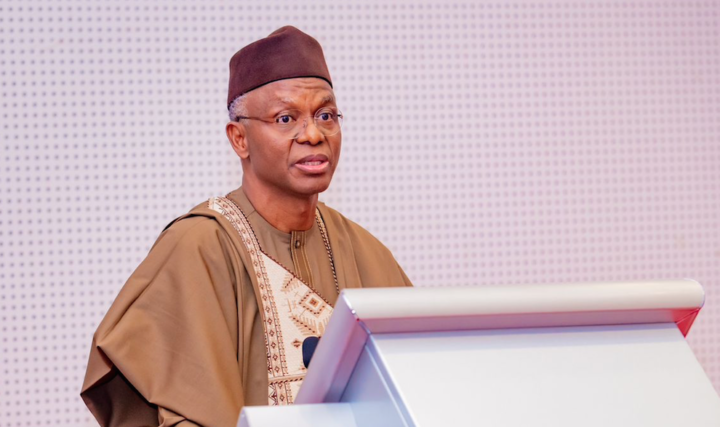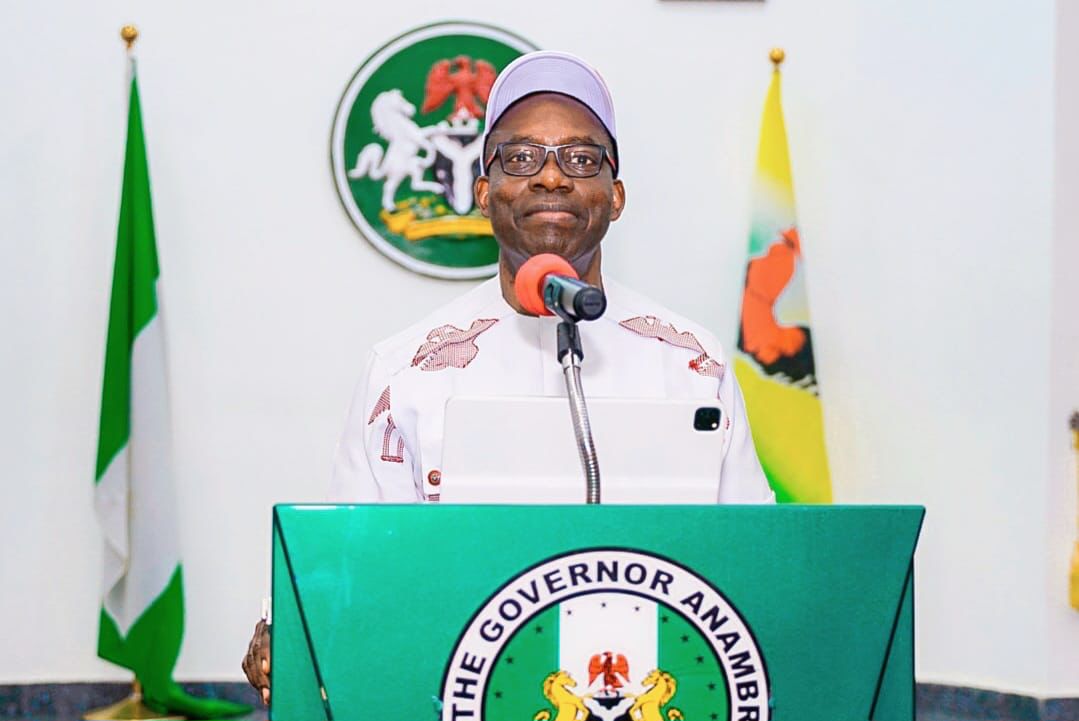#EndBadGovernance protest in August 2024 | File photo
BY KALIM AHMED AND SAMUEL OLANIRAN
When Nigerian youths ignited a powerful movement in October 2020 to demand an end to police brutality and the disbandment of the notorious special anti-robbery squad (SARS) under the #EndSARS banner, they showed unprecedented solidarity at a time of global uncertainty and isolation. The #EndSARS movement, like many others around the world, was fuelled by the power of social media, with Twitter (now X) serving as the epicentre of mobilisation.
Supported by the Nigerian diaspora, the protestors on the ground carried the national flag and sang the national anthem, a poignant reminder that their fight was not against the nation but against the injustices perpetuated by the system. Despite the symbolism signalled by the protestors, they were dealt with brutally by the state, with at least 12 peaceful protesters being killed in Alausa and Lekki Lagos by security operatives on that day, according to Amnesty International.
From a distance, one could observe the simmering discontent that had long been brewing beneath the surface of Nigerian society. It was only a matter of time before a reaction was marshalled against systemic corruption, years of economic hardship, and political mismanagement. These reactions, while echoing the cries of the earlier #EndSARS movement, sought to address the broader issues plaguing the nation. With the memory of the Lekki Toll Gate still fresh, the demonstrators were fuelled by a renewed determination to hold their leaders accountable, demanding a Nigeria that truly serves its people. As this new wave of activism unfolded, it became clear that the call for change was not just about high inflation but about the very fabric of governance in Nigeria.
Advertisement
The recent #EndBadGovernanceInNigeria or Hunger protests had similar elements — support from the diaspora, mobilisation mostly took place online — but this time the symbolic gesture was the Russian flag and not the Nigerian flag, a stark contrast to what was seen almost four years ago. The hunger protest was also boycotted in the south-east, as stated by the elders of the region just a day ahead of the protest. Some argue that the decision is not unconnected to the targeted hate and violence the Igbos have suffered, online and offline, since the 2023 general elections.
A look at the online discourse that took place just a few weeks leading up to the protest as well as the political response by the Tinubu administration gives a clear picture of what was going to come. Though some things may appear isolated and exist in their own vacuum, however, when these elements are compounded together, it gives a schematic of the public’s opinion – there is rampant cronyism, the elite are untouched by the inflation and cost of living and there is a distrust and disgust amongst the citizenry with the political institutions of the country.
Firstly, the special adviser to the president on information and strategy, Bayo Onanuga, had set the tone toward the protests and its organisers by accusing supporters of Peter Obi, the LabourParty (LP) presidential candidate in the 2023 election, of plotting to unseat President Bola Tinubu under the guise of protests. This message was then echoed by various government officials, governors, elites, etc. In one case, Governor Umar Namadi of Jigawa acknowledged the economic circumstances of the country but advised Nigerians to accept the hardships as a “trial from God.”
Advertisement
At the same time, on July 27, the inspector-general of police of the Nigeria Police Force, Kayode Egbetokun, announced at a press conference that they had credible evidence of the involvement of foreign mercenaries in the upcoming protest and urged Nigerian citizens to maintain caution before joining any protest groups. There were also claims by security officials that the protests were being funded using cryptocurrencies. The protestors online countered these allegations by emphasising that their protest is funded by hunger, inflation, cost of living, etc. In fact, a video of Tinubu’s old speech criticising the abysmal situation in Nigeria was shared on social media as a speech from one of the sponsors of the protest.
OTHER ISSUES DOMINATE DISCOURSE
Around this time, it was alleged online that Umar Zulum, the son of the governor of Borno state, Professor Zulum, had killed a man in India in a nightclub with a bottle. This was also widely reported in a section of Nigerian media, however, there is no credible evidence to support that such an incident had occurred in India. Moreover, the allegations have been refuted by the son of the governor.
Simultaneously, throughout July, the Bola Tinubu administration and its officials were in a public spat with Africa’s richest man Aliko Dangote, and his company officials. The regulators accused Dangote Refinery of being a monopoly, meanwhile, the management of the Dangote Refinery accused international oil producers of unfairly selling locally produced crude to it above market prices.
Advertisement
The bitter row between Dangote Refinery and the regulators became part of the public discourse, and it was very much visible in the hashtag #EndBadGovernanceInNigeria. A photo was circulating on X (formerly known as Twitter) accompanying the hashtag, it had a list of names/officials, including that of President Bola Ahmed Tinubu’s nephew Wale Tinubu. It was alleged that these people were shareholders of a Maltese company called Ras Hanzir Oil Terminal Limited, which operates an oil storage and blending facility and is purportedly responsible for importing adulterated petroleum products into Nigeria.
Oando PLC, whose chief executive is Wale Tinubu, refuted these allegations on July 28. Essentially, the claims alleged that the oil cabal that the Tinubu government claimed to be fighting was Tinubu and his kin.
A thread on X (formerly known as Twitter) looking into the alleged corrupt practices of the Tinubu government went viral on the platform amassing 3.6 Million views. This thread along with videos based on the alleged photo of the list of board members of Ras Hazir oil were circulating for days. The allegations underscore the deep-rooted and systemic corruption that has long plagued Nigeria’s political system.
The widespread public discourse and social media outcry, reflected in the #EndBadGovernanceInNigeria protests, highlight a growing awareness and frustration among Nigerians about the perceived impunity with which these political-business alliances operate. Such incidents are not isolated but rather symptomatic of a larger culture of corruption where political office is frequently used as a means to amass wealth, thereby eroding public trust in governance and perpetuating a cycle of exploitation and inequality in the country.
Advertisement
A week ahead of the protest, the director of defence media operations, Maj-Gen Edward Buba, disclosed at a press briefing, that some “unscrupulous elements are bent on hijacking” the planned nationwide protests “for violent purposes” and that the military will curb the protest if needed based on these intels. The protest indeed got violent in the north, especially in states like Kano, Kaduna, and Jigawa, where government establishments were attacked and looted. In addition to that, the allegations of corruption and cronyism were echoed by protestors loudly and clearly who also flaunted the Russian flag and demanded Russian intervention or the Nigerian military to take over.
In the last few years, Nigeria’s neighbours such as Chad, Niger, Burkina Faso, and Mali, which are close to Nigeria’s North fell into military rule. Leaders of these countries had close relations with Western countries, especially France, and it was popularly believed by the citizenry that the symptoms of their troubles lay in Western involvement in their country. Similarly, in Nigeria, security experts opine that the protesters believe that the cost of living crisis is the result of reforms dictated to Tinubu by Western institutions such as the International Monetary Fund and the World Bank.
Advertisement
The call for foreign intervention or a military junta is perhaps the silent belief being expressed that the citizenry is losing faith in democracy as it continues to result in hardship and disappointments. It reflects a growing frustration with democratic governance. Many people are increasingly disillusioned, seeing politics in most African countries as a lottery where politicians and officials are the beneficiaries, while ordinary citizens, who have yet to experience the fruits of democratic dividends, are left empty-handed.
The increasing support for military intervention by some segments of the population serves as a stark condemnation of leaders who have eroded the ethical foundations of governance. The distrust in government highlights the urgency for the Nigerian government to engage all stakeholders in meaningful dialogue to address these concerns. More importantly, the government must take concrete steps to change the perception that political offices are mere opportunities for personal enrichment.
Advertisement
Prominent internal observers, like Mohammed Ali Ndume— a leading figure in the ruling All Progressives Congress (APC) and the Nigerian senate’s chief whip until recently — have voiced criticism of the current administration. Ndume has described the government as being run by “kakistocrats” and dominated by “kleptocrats,” expressing concern that the president is “caged in” and that the government is failing to address critical issues such as climate change, hunger, and inflation. Sacked by the senate as chief whip within days of criticising the President, he argued that the solution lies in surrounding the president with individuals who can both help realize his vision and honestly address challenges when things go awry. This criticism reflects the broader challenges of governance in Nigeria, where corruption and mismanagement continue to undermine the country’s progress.
• Kalim Ahmed is an OSINT researcher based out of India with a focus on disinformation, platform accountability, and foreign information manipulation and interference (FIMI).
• Samuel Olaniran is a researcher based out of South Africa with a focus on disinformation, foreign information manipulation and interference (FIMI).
Advertisement
Views expressed by contributors are strictly personal and not of TheCable.
